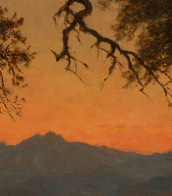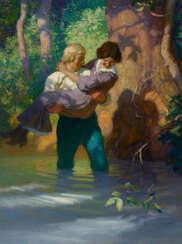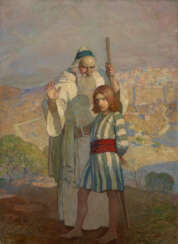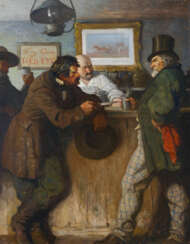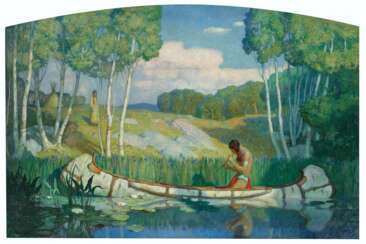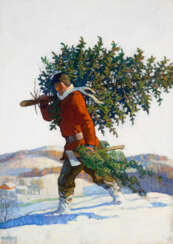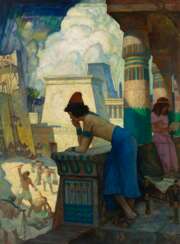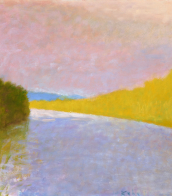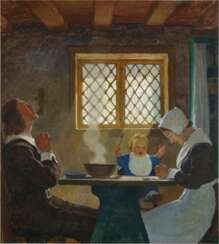newell convers wyeth (1882 - 1945)
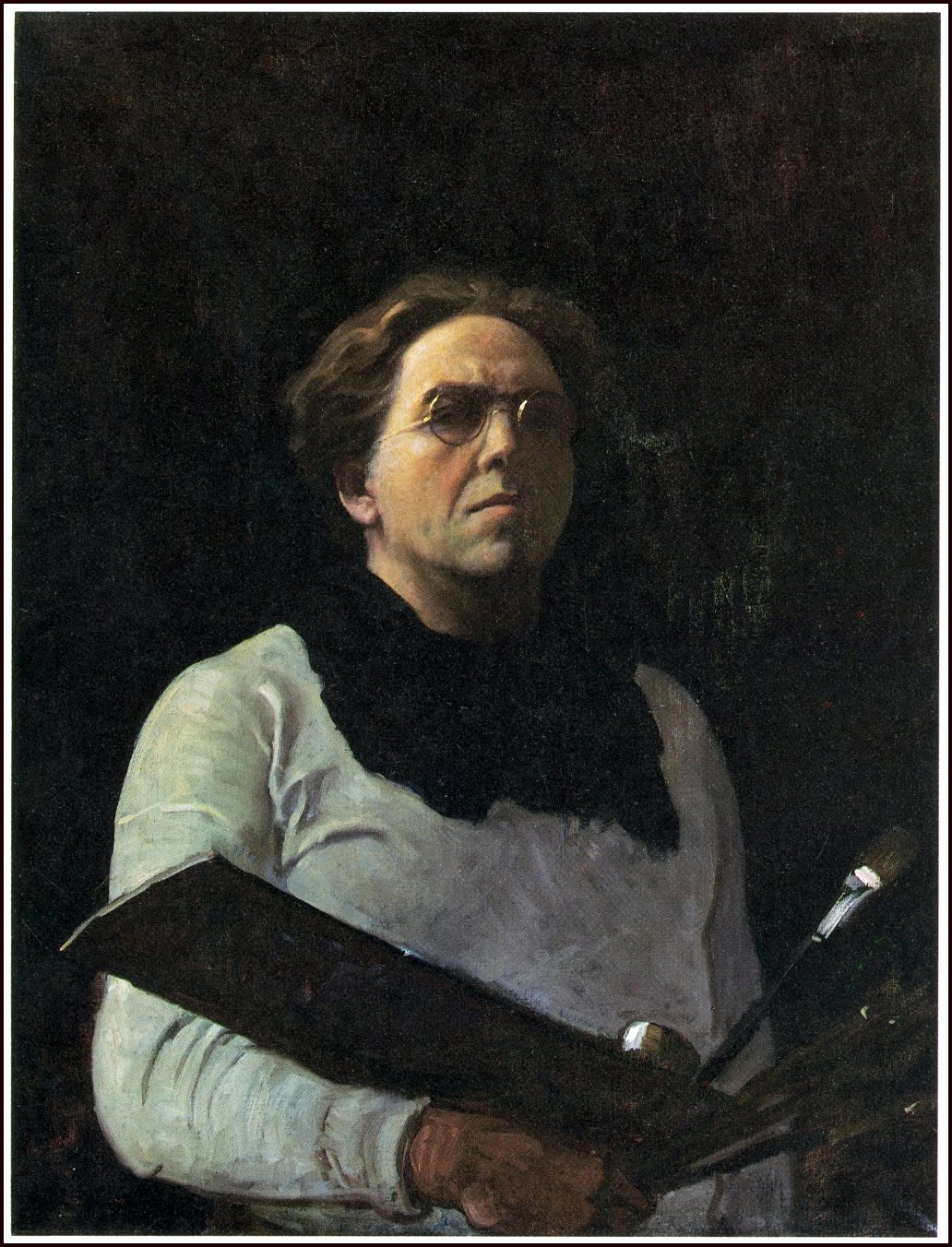
Newell Convers Wyeth, better known as N.C. Wyeth, was an American painter and illustrator, celebrated for his vivid and dramatic illustrations that brought to life classic literature for the Scribner’s Illustrated Classics series. Born on October 22, 1882, in Needham, Massachusetts, Wyeth displayed artistic talent from an early age, encouraged by his supportive mother. He trained under the tutelage of Howard Pyle, the "father of American illustration," who influenced him deeply, instilling a penchant for romanticism and historical accuracy in his work.
Wyeth’s illustrations for books like "Treasure Island," "The Last of the Mohicans," and "Robinson Crusoe" are among his most famous and have left a lasting legacy in the field of American illustration. His work was characterized by a robust, painterly style that effectively conveyed the adventure and emotion of the stories he illustrated. Beyond book illustrations, Wyeth also excelled in creating murals and was commissioned to paint for various public and private institutions, including banks and schools, depicting scenes that ranged from historical narratives to allegorical themes.
Despite his commercial success, Wyeth often expressed a desire to be recognized for his personal paintings, and he struggled with the commercial constraints of illustration. He explored a variety of artistic styles throughout his career, including Impressionism and Realism, and was an adept muralist as well as a studio artist. His legacy continues to influence artists and captivates art collectors and experts in the field, securing his place as a key figure in American art history.
For those interested in staying updated on exhibitions and sales related to N.C. Wyeth, consider signing up for updates focused on his works and related auction events.
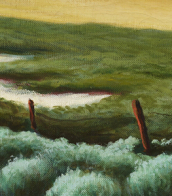

Newell Convers Wyeth, better known as N.C. Wyeth, was an American painter and illustrator, celebrated for his vivid and dramatic illustrations that brought to life classic literature for the Scribner’s Illustrated Classics series. Born on October 22, 1882, in Needham, Massachusetts, Wyeth displayed artistic talent from an early age, encouraged by his supportive mother. He trained under the tutelage of Howard Pyle, the "father of American illustration," who influenced him deeply, instilling a penchant for romanticism and historical accuracy in his work.
Wyeth’s illustrations for books like "Treasure Island," "The Last of the Mohicans," and "Robinson Crusoe" are among his most famous and have left a lasting legacy in the field of American illustration. His work was characterized by a robust, painterly style that effectively conveyed the adventure and emotion of the stories he illustrated. Beyond book illustrations, Wyeth also excelled in creating murals and was commissioned to paint for various public and private institutions, including banks and schools, depicting scenes that ranged from historical narratives to allegorical themes.
Despite his commercial success, Wyeth often expressed a desire to be recognized for his personal paintings, and he struggled with the commercial constraints of illustration. He explored a variety of artistic styles throughout his career, including Impressionism and Realism, and was an adept muralist as well as a studio artist. His legacy continues to influence artists and captivates art collectors and experts in the field, securing his place as a key figure in American art history.
For those interested in staying updated on exhibitions and sales related to N.C. Wyeth, consider signing up for updates focused on his works and related auction events.
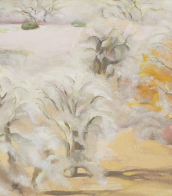

Newell Convers Wyeth, better known as N.C. Wyeth, was an American painter and illustrator, celebrated for his vivid and dramatic illustrations that brought to life classic literature for the Scribner’s Illustrated Classics series. Born on October 22, 1882, in Needham, Massachusetts, Wyeth displayed artistic talent from an early age, encouraged by his supportive mother. He trained under the tutelage of Howard Pyle, the "father of American illustration," who influenced him deeply, instilling a penchant for romanticism and historical accuracy in his work.
Wyeth’s illustrations for books like "Treasure Island," "The Last of the Mohicans," and "Robinson Crusoe" are among his most famous and have left a lasting legacy in the field of American illustration. His work was characterized by a robust, painterly style that effectively conveyed the adventure and emotion of the stories he illustrated. Beyond book illustrations, Wyeth also excelled in creating murals and was commissioned to paint for various public and private institutions, including banks and schools, depicting scenes that ranged from historical narratives to allegorical themes.
Despite his commercial success, Wyeth often expressed a desire to be recognized for his personal paintings, and he struggled with the commercial constraints of illustration. He explored a variety of artistic styles throughout his career, including Impressionism and Realism, and was an adept muralist as well as a studio artist. His legacy continues to influence artists and captivates art collectors and experts in the field, securing his place as a key figure in American art history.
For those interested in staying updated on exhibitions and sales related to N.C. Wyeth, consider signing up for updates focused on his works and related auction events.


Newell Convers Wyeth, better known as N.C. Wyeth, was an American painter and illustrator, celebrated for his vivid and dramatic illustrations that brought to life classic literature for the Scribner’s Illustrated Classics series. Born on October 22, 1882, in Needham, Massachusetts, Wyeth displayed artistic talent from an early age, encouraged by his supportive mother. He trained under the tutelage of Howard Pyle, the "father of American illustration," who influenced him deeply, instilling a penchant for romanticism and historical accuracy in his work.
Wyeth’s illustrations for books like "Treasure Island," "The Last of the Mohicans," and "Robinson Crusoe" are among his most famous and have left a lasting legacy in the field of American illustration. His work was characterized by a robust, painterly style that effectively conveyed the adventure and emotion of the stories he illustrated. Beyond book illustrations, Wyeth also excelled in creating murals and was commissioned to paint for various public and private institutions, including banks and schools, depicting scenes that ranged from historical narratives to allegorical themes.
Despite his commercial success, Wyeth often expressed a desire to be recognized for his personal paintings, and he struggled with the commercial constraints of illustration. He explored a variety of artistic styles throughout his career, including Impressionism and Realism, and was an adept muralist as well as a studio artist. His legacy continues to influence artists and captivates art collectors and experts in the field, securing his place as a key figure in American art history.
For those interested in staying updated on exhibitions and sales related to N.C. Wyeth, consider signing up for updates focused on his works and related auction events.


Newell Convers Wyeth, better known as N.C. Wyeth, was an American painter and illustrator, celebrated for his vivid and dramatic illustrations that brought to life classic literature for the Scribner’s Illustrated Classics series. Born on October 22, 1882, in Needham, Massachusetts, Wyeth displayed artistic talent from an early age, encouraged by his supportive mother. He trained under the tutelage of Howard Pyle, the "father of American illustration," who influenced him deeply, instilling a penchant for romanticism and historical accuracy in his work.
Wyeth’s illustrations for books like "Treasure Island," "The Last of the Mohicans," and "Robinson Crusoe" are among his most famous and have left a lasting legacy in the field of American illustration. His work was characterized by a robust, painterly style that effectively conveyed the adventure and emotion of the stories he illustrated. Beyond book illustrations, Wyeth also excelled in creating murals and was commissioned to paint for various public and private institutions, including banks and schools, depicting scenes that ranged from historical narratives to allegorical themes.
Despite his commercial success, Wyeth often expressed a desire to be recognized for his personal paintings, and he struggled with the commercial constraints of illustration. He explored a variety of artistic styles throughout his career, including Impressionism and Realism, and was an adept muralist as well as a studio artist. His legacy continues to influence artists and captivates art collectors and experts in the field, securing his place as a key figure in American art history.
For those interested in staying updated on exhibitions and sales related to N.C. Wyeth, consider signing up for updates focused on his works and related auction events.


Newell Convers Wyeth, better known as N.C. Wyeth, was an American painter and illustrator, celebrated for his vivid and dramatic illustrations that brought to life classic literature for the Scribner’s Illustrated Classics series. Born on October 22, 1882, in Needham, Massachusetts, Wyeth displayed artistic talent from an early age, encouraged by his supportive mother. He trained under the tutelage of Howard Pyle, the "father of American illustration," who influenced him deeply, instilling a penchant for romanticism and historical accuracy in his work.
Wyeth’s illustrations for books like "Treasure Island," "The Last of the Mohicans," and "Robinson Crusoe" are among his most famous and have left a lasting legacy in the field of American illustration. His work was characterized by a robust, painterly style that effectively conveyed the adventure and emotion of the stories he illustrated. Beyond book illustrations, Wyeth also excelled in creating murals and was commissioned to paint for various public and private institutions, including banks and schools, depicting scenes that ranged from historical narratives to allegorical themes.
Despite his commercial success, Wyeth often expressed a desire to be recognized for his personal paintings, and he struggled with the commercial constraints of illustration. He explored a variety of artistic styles throughout his career, including Impressionism and Realism, and was an adept muralist as well as a studio artist. His legacy continues to influence artists and captivates art collectors and experts in the field, securing his place as a key figure in American art history.
For those interested in staying updated on exhibitions and sales related to N.C. Wyeth, consider signing up for updates focused on his works and related auction events.
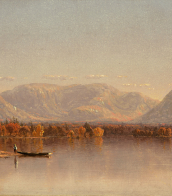

Newell Convers Wyeth, better known as N.C. Wyeth, was an American painter and illustrator, celebrated for his vivid and dramatic illustrations that brought to life classic literature for the Scribner’s Illustrated Classics series. Born on October 22, 1882, in Needham, Massachusetts, Wyeth displayed artistic talent from an early age, encouraged by his supportive mother. He trained under the tutelage of Howard Pyle, the "father of American illustration," who influenced him deeply, instilling a penchant for romanticism and historical accuracy in his work.
Wyeth’s illustrations for books like "Treasure Island," "The Last of the Mohicans," and "Robinson Crusoe" are among his most famous and have left a lasting legacy in the field of American illustration. His work was characterized by a robust, painterly style that effectively conveyed the adventure and emotion of the stories he illustrated. Beyond book illustrations, Wyeth also excelled in creating murals and was commissioned to paint for various public and private institutions, including banks and schools, depicting scenes that ranged from historical narratives to allegorical themes.
Despite his commercial success, Wyeth often expressed a desire to be recognized for his personal paintings, and he struggled with the commercial constraints of illustration. He explored a variety of artistic styles throughout his career, including Impressionism and Realism, and was an adept muralist as well as a studio artist. His legacy continues to influence artists and captivates art collectors and experts in the field, securing his place as a key figure in American art history.
For those interested in staying updated on exhibitions and sales related to N.C. Wyeth, consider signing up for updates focused on his works and related auction events.
